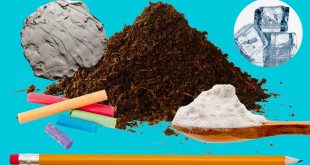 A therapeutic diet is the easiest way to get rid of constipation.
A therapeutic diet is the easiest way to get rid of constipation.
If a person is experiencing pain when urinating, or the chair is absent for several days, talking about constipation. The main principle of treatment of this disease is the diet.
Usually the constipation observed in people with chronic diseases of the intestine.
Basic rules
The purpose of the diet for constipation is to normalize bowel function, in particular his regular emptying and ridding the body of toxic products of metabolism. Therefore, a diet aimed to increase the daily diet of vitamins, liquid minerals and of course fiber.
Classification Pevsner diet for constipation corresponds to the therapeutic table # 3.
The content of protein in the daily diet is 100-120 grams, fats – 100-120 grams, carbohydrates – 400-450 grams, salt 15 grams. And fiber should be contained in half of the products in the daily diet.
The energy value of the diet corresponds to the 3000-3500 kcal per day.
The basic rules of the diet for constipation:
If constipation is recommended to use boiled, steamed and baked, but without the crust meals (in foil). When atonic constipation food should be prepared in portions and crush to strengthen peristalsis. Products from minced meat and mashed potatoes it is better to avoid, because such a diet does not stimulate intestinal motility. And spastic constipation food should be, on the contrary, soft, not to provoke pain in the abdomen.
Meals should be fractional: 5-6 times a day in small portions. It promotes good bowel function.
In the diet should be followed the temperature regime: to eat food, heated up to 15-60 degrees Celsius. Too cold and too hot meals are irritating on the stomach, which in turn affects the bowel.
With constipation and addiction should refrain from drinking alcoholic beverages because they act as diuretics. Frequent consumption of alcohol leads to dehydration and contributes to the creation of fecal debris.
the intake of fluids.
Daily amount of free fluid should reach 1.5-2 liters. Drinks preference should be given mineral water and fruit drinks without sugar. Water softens stool, which facilitates defecation. But from cocoa, strong coffee and tea should be abandoned.
Diet for constipation includes drinking large quantities of raw and cooked vegetables and fruits. Fiber contained in them, absorbing water in the large intestine, it increases the amount of feces, making them softer, has a positive effect on intestinal peristalsis, ensures the growth of intestinal microflora, but it also removes toxins from the body.
Permitted foods
First, in the list of allowed foods includes those that are rich in fiber. Fiber is not only contained in fresh vegetables and fruits, but also dried fruits, and some grains.
Secondly, the diet in this syndrome needs to be fortified and rich in trace elements, particularly potassium and magnesium. Potassium is responsible for peristalsis, and magnesium for its conductivity of nerve fibers.
We should not forget about dairy products. They stimulate the growth of intestinal microflora, normalize motor function of the intestine. Vegetable oils and animal fats envelop the wall of the intestine, preventing toxins “stick” to them, and provide a soft evacuation of feces from it.
Treatment table with constipation should contain optimum amount of proteins, fats and carbohydrates, as their deficiency aggravates this condition.
In the list of allowed foods includes:
– grain products like rye and wheat flour, but coarse, dry biscuits (crackers) in small amounts, nesdobnoe pastries;
soups with vegetable and divorced meat (non-greasy) broth, borscht, cabbage soup, Sokolniki, soups, vegetables;
– lean poultry, fish and meat (veal, Turkey boiled or baked);
– crumbly porridge from buckwheat, millet, oatmeal, barley grains, cooked in water with milk;
– fresh vegetables and salads from them with vegetable oil (beets, cabbage, beans, zucchini, tomatoes, cucumbers, green peas, pumpkins and others);
green vegetables, which are a source of magnesium (lettuce, celery, broccoli, green beans boiled, etc.);
– ripe fruit and berries, fruit drinks, compotes, jam from them, are especially useful apples;
dried fruits, which are a source of micronutrients, special attention should be prunes;
vegetable oil, butter with portability;
– sour cream, yogurt, low-fat cottage cheese, acidophilus;
– mild cheese;
– soaked herring, seafood;
– tea from rose hips and wheat bran, vegetable juices;
– boiled eggs and omelets for a couple;
– pasta;
– med.
Prohibited products
Banned foods for constipation are those that cause flatulence, putrefaction and fermentation in the gut. One should not consume food that is irritating to the stomach.
In spastic constipation food should be fed in mash (e.g., vegetables) and minced meat, so as not to damage the intestinal wall.
Not recommended for viscous cereals, as they slowly evacuated from the bowel and aggravate constipation. The same effect and have those products which contain a lot of starch. In addition, from the diet should exclude foods that have a lot of tannin: they suppress the motor function of the intestine. Dishes that cause “strain” of the gall bladder, is also best avoided.
The list of banned products includes:
– bakery pastry, puff pastry, fresh white bread;
– fatty meats and fish;
– bean limited;
– mucous cereals (rice, semolina);
– spicy snacks, canned goods;
– hot spices (pepper, horseradish, mustard);
– vegetables (radish, onion, garlic);
– jelly (lot of starch);
– potatoes constraints.
– bananas;
– strong tea, blueberries (lots of tannin);
– chocolate, quince, barberry;
– mushrooms;
– pastry cream with fat;
soups of rich and fatty broths;
– fried eggs;
– spicy and fatty cheeses;
– mayonnaise;
jelly, marmalade, candy;
– alcoholic drinks;
– flour dishes (dumplings, dumplings, cakes, especially the fried).
The need for dieting
The diet helps to not only get rid of constipation and other symptoms that accompany this condition (bloating and abdominal pain). Eliminating the forbidden foods, the patient normalizes the gastrointestinal tract as a whole and prevents the development of diseases, which inevitably contribute to constipation (gastritis, cholecystitis).
In addition, proper nutrition promotes the growth and activity of normal microflora in the intestine and prevents the development of symptoms of an intoxication. Subject to treatment table body vitaminiziruet, reduced weight, and the condition of the hair and skin improves.








